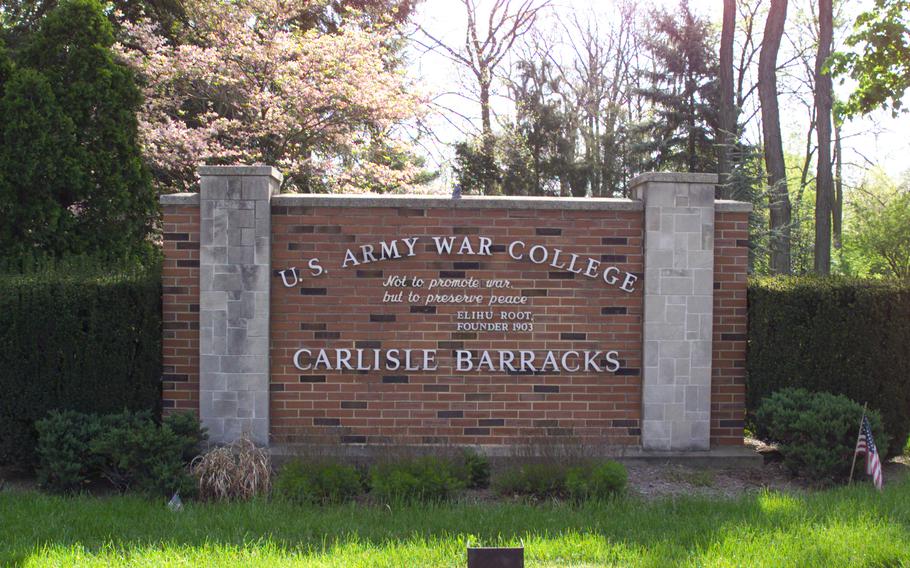
The main entrance sign to Carlisle Barracks and the U.S. Army War College. The U.S. Army on Wednesday, April 10, 2024, announced that it will continue its efforts to disinter the remains of Native American children buried at the Carlisle Barracks with a seventh disinterment project aimed to begin in September. (Scott Finger/U.S. Army War College )
(Tribune News Service) — The U.S. Army on Wednesday announced that it will continue its efforts to disinter the remains of Native American children buried at the Carlisle Barracks with a seventh disinterment project aimed to begin in September.
The Office of Army Cemeteries will work on disinterring 11 children from six tribes beginning Sept. 3. The effort to reunite families with former Carlisle Indian Industrial School students will involve a forensic archaeological and anthropological disinterment, where experts will try to make sure those buried under the gravestones match the gender and age of the children buried there.
Of the 229 burial plots in the Carlisle Barracks cemetery, 180 are believed to contain the remains of Native American children and young adults who attended the Carlisle Indian School. Close to 8,000 youths went through that school in the 40 years it was open from 1879 to 1918.
“The return of these 11 children to their Native American families is one of the Army’s highest priorities and we hope it will bring them the long-awaited peace and closure they deserve,” said Karen Durham-Aguilera, executive director of Army National Military Cemeteries and the Office of Army Cemeteries. “We will continue to work with families and tribes in their courageous undertaking to return these children home.”
This year, the Army will focus their efforts on retrieving the remains of William Norkok from the Eastern Shoshone Tribe; Almeda Heavy Hair, Bishop L. Shield, and John Bull from the Gros Ventre Tribe of the Fort Belknap Indian Community; Fanny Chargingshield, James Cornman and Samuel Flying Horse from the Oglala Sioux Tribe; Leonidas Chawa from the Pechanga Band; Albert Mekko from the Seminole Nation of Oklahoma; and Alfred Charko and Kati Rosskidwits from the Wichita and Affiliated Tribes.
Though the Army has made progress every year to disinter more remains, not all Native American tribes agree with the process.
In January this year, the Winnebago Tribe of Nebraska sued the U.S. Army in federal court seeking repatriation of remains of two former students after the Army denied the tribe’s request over protocol.
(c)2024 The Sentinel (Carlisle, Pa.)
Visit at www.cumberlink.com
Distributed by Tribune Content Agency, LLC.